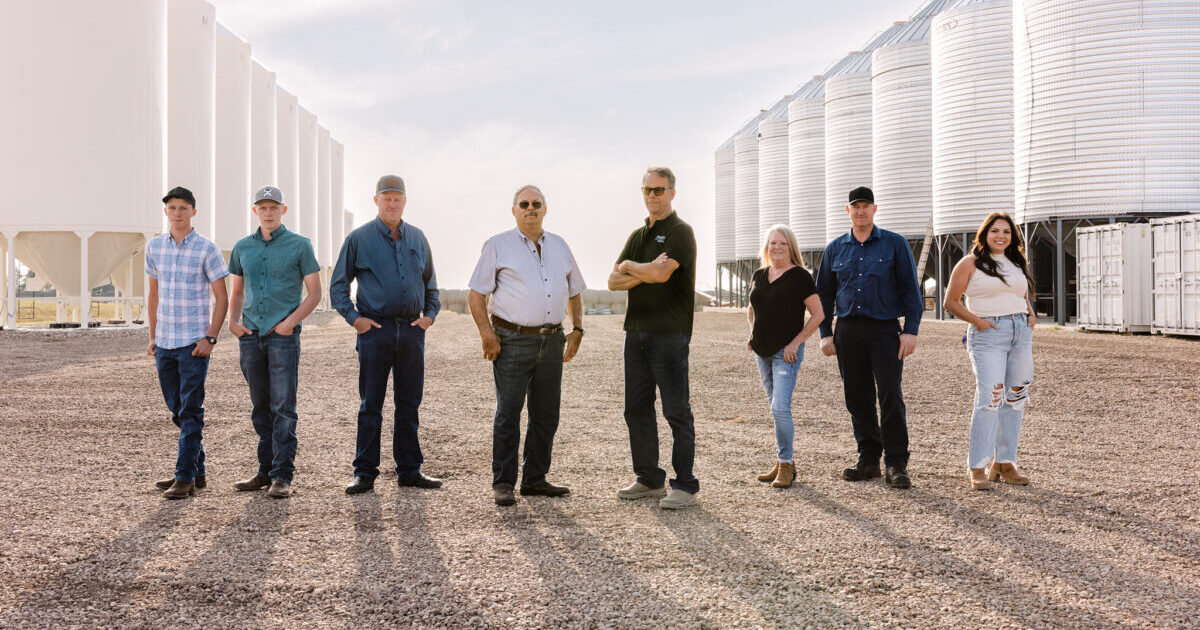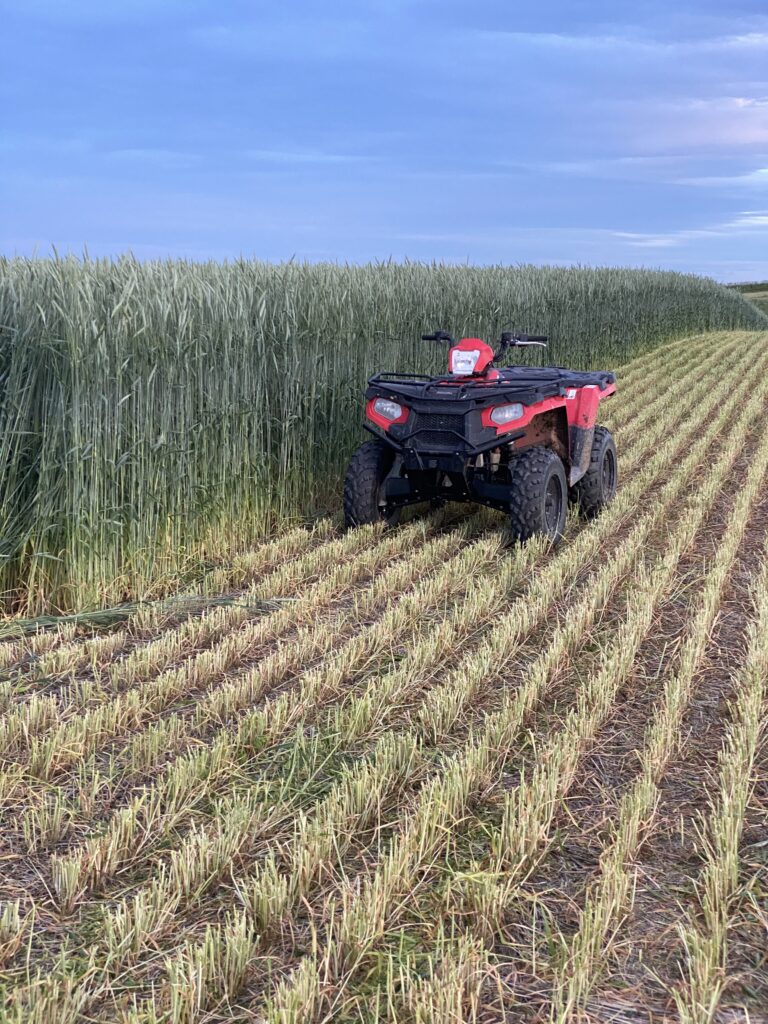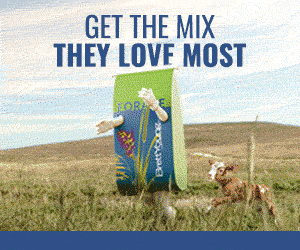AB Direct - Steers
Rail: 530.00 del
AB Direct - Heifers
Rail: 530.00 del
US Trade- Steers
Rail: ---
US Trade - Heifers
Rail: ---
Canadian Dollar
0.14

Seed growers working with plant breeders
At Corns Seeds, they don’t just grow seeds, they also work with the plant breeders who develop those seeds.
The Corns family has been farming for four generations. In that time, they’ve always focused on innovating to grow and keep the farm going for the next generation.
“Land stewardship has always been a really big focus on our farm. We’re kind of born and bred farmers. So, we’ve always paid a lot of attention to what varieties are going to do well here and what varieties are going to leave the land in good shape,” says Whitney Corns, of Corns Seeds.
Her grandfather Harvey Corns was the one who started the family’s interest in the seed industry. In the 1960s, Harvey started growing rye seed for Progressive Seeds, but it wasn’t until the 1990s, when brothers Bryan and Gary Corns start the family’s pedigreed seed business. Whitney herself returned to the family farm six years ago after a stint working in the Okanagan Valley in British Columbia in the wine industry.
“[Brian and Gary] have farmed together their whole lives. And they were quite progressive with trying new crops and trying new rotations and using different types of equipment to improve soil health around our operation,” Whitney explains.
The Corns have 9,000 acres of cropland and grassland in Grassy Lake, Alta. The cropland is a mix of irrigated and non-irrigated, running on a four-year crop rotation. For pedigreed seed, the family grows winter and spring triticale, winter wheat, barley, oats, and forage peas and sell sorghum sudangrass, millet, and other cover crop seeds. They also grow commercial canola, silage, and feed grains.
“We were really out there trying to find different varieties and different grains to help our operation, help our cows make good-quality feed.”
The family doesn’t just grow seed and other crops, they also have a 400-head herd of Red Angus beef cattle. The livestock have elevated the seed side of the business, with the Corns taking an interest in forage seed and other grains to feed their animals
Their decision to get into the seed industry doesn’t stop at the seed growing level. The Corns have also taken an active role in working with plant breeders and breeding programs to test out and discover the best varieties to grow on irrigated and non-irrigated land and find what are best to feed to livestock.
“We do spend a lot of time working with the research stations, specifically out of Lacombe,” Whitney explains. “We’re always up to have discussions with the plant breeders and look at the data and plots they have.”

One of the plant breeders the Corns work with is Mazen Aljarrah, the triticale crop breeder at the Olds College Field Crop Development Centre (FCDC) in Lacombe, Alta.
“Corns Seeds has really tremendous experience on triticale market, especially in the southeastern part
of Canada and U.S. Corns Seeds provides FCDC with all [the] support to market and promote our released
triticale varieties,” Aljarrah explains.
The Corns provide important information to Aljarrah and his team about what end users are looking for
regarding crop varieties. “It’s really important for someone to link all of those together and communicate what the end consumers are looking for and what their needs and requirements are,” Whitney says.
The relationship is mutually beneficial. Aljarrah adds he’ll frequently hear from the Corns telling him which future triticale varieties would be beneficial for farmers growing the crop or farmers feeding it to their livestock.
As the farm moves forward, the Corns are working on succession planning. Three years ago, they changed the operation’s name from Corns Brothers Farm to Corns Seeds to include the next generation now working on the farm — Whitney. As Whitney looks toward the future of the farm, she wants to expand the seed side of the business and start dedicating more time to on-farm research and demo plots. She also wants to strengthen the farm’s crop rotation by introducing new crops and utilizing the land the Corns have by focusing more on double cropping.
This story was brought to you in partnership with Alberta Seed Guide. It was published in Volume 3 Issue 3 of ABP Magazine.


